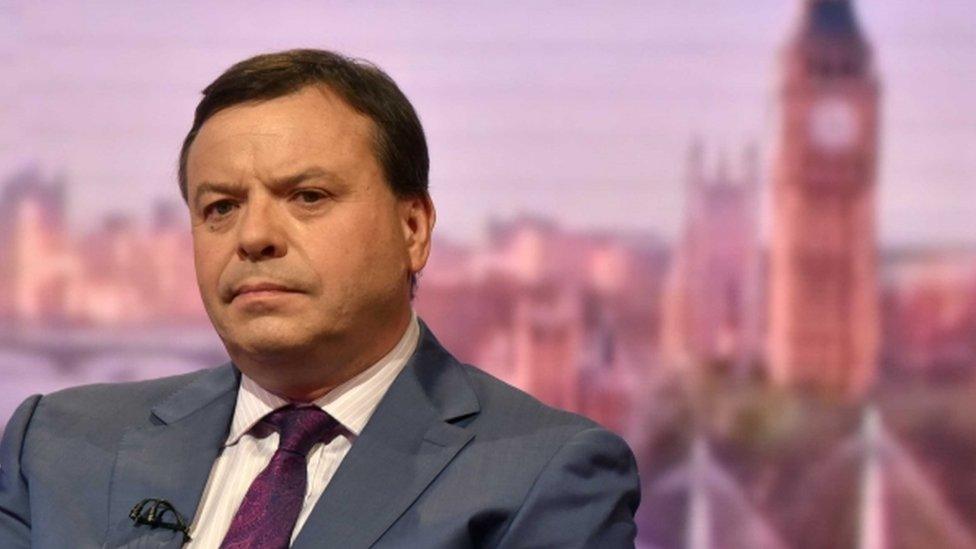Westmonster: Arron Banks launches anti-establishment website
- Published
Amol Rajan reports on the launch of the Westmonster website
Arron Banks, the former UKIP donor who bankrolled the campaign for Britain to leave the European Union, is making a move into the media sector by backing an anti-establishment news website.
I can reveal that Westmonster, external is co-owned by Michael Heaver, former press adviser to Nigel Farage. The 27-year-old, who together with Mr Banks will own 50% of the website, will edit it day to day.
Modelled on the Drudge Report, external, the American aggregator site that generates huge traffic, Westmonster will be powered by the social media reach of Leave.EU, the campaign to which Mr Banks gave close to £7m - the largest donation in British political history.
Leave.EU has nearly 800,000 followers, external on Facebook and Mr Heaver believes he can use that base to generate substantial traffic from day one.
Westmonster will publish some original news, and Mr Heaver hopes to enlist more celebrity writers than backbench MPs.
The site will launch with an article from Nigel Farage, and Mr Heaver is open about wanting to ape the opinionated, anti-establishment, highly provocative tone of Breitbart., external
This launch is significant for several reasons. It shows that the anti-establishment media which helped to power the campaign of Donald Trump is coming to Britain.
It's no coincidence that Westmonster is launching the day before Mr Trump's inauguration - an event that will be attended, almost alone among Brits, by Nigel Farage, Arron Banks, and Mr Banks's business associate Andy Wigmore, who are together hosting a celebratory party on Saturday night in a hotel across the road from the White House.
Banks has booked out an entire floor of the Hay-Adams Hotel on Saturday night, and - logistics permitting - the plan is for the new President to attend, along with his close friend the Governor of Mississippi, Phil Bryant.
Public life
It also marks a significant acceleration of Mr Banks's involvement in British public life.
I spent time with him in the nondescript offices of his insurance company on the edge of Bristol on Tuesday, with a Premier Inn on one side and the M4-M5 junction on the other.

Arron Banks donated millions to the Brexit campaign
He is an extremely intriguing character, as this superb profile for Radio 4 pointed out.
He tweets vigorously, external and his politics do not fit into the anachronistic right-left spectrum through which so much of Westminster is still naively interpreted.
For instance, he favours nationalisation of Britain's railways and some utilities over their present near-monopoly status, harbours a visceral hatred of many Tories, and has had several conversations with Labour MPs about wooing them over to the populist Momentum-style movement that he intends to launch in the coming months.
I also revealed in December that he has expressed interest in more traditional media - that is, The Daily Telegraph.
Now, as I put to him yesterday, he has become Britain's latest media baron. He helps to show how the rise of digital media has not so much blurred the distinction between media and politics as abolished it; how the culture wars raging in the US are being imported here; and how traditional media - including the BBC - face ferocious competition like never before.